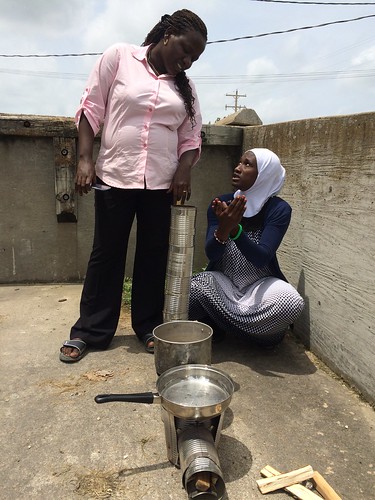
Research shows the majority of people in Africa depend on biomass to meet their energy needs, with approximately 80 percent relying on wood energy. Such high dependency makes families vulnerable to unexpected and sudden changes, including extreme weather and socio-political events. Researching and developing ways to diversify energy sources is crucial for a more sustainable, food secure future.
A project funded through the USDA Foreign Agricultural Service (FAS) Cochran Fellowship Program on “Biofuels for Sustainable Rural Livelihoods,” hosted by the University of Missouri (MU) College of Agriculture, Food and Natural Resources International Programs, set out to address this very issue. The research and training program was organized for West African Cochran Fellows to learn how different uses of biofuels can help support sustainable livelihoods in their communities. The two-week-long program consisted of workshops, field visits and interactive discussions in cooperation with the USDA Forest Products Laboratory, the MU Center for Agroforestry, Columbia Center for Urban Agriculture and Envest Microfinance.
“Biofuels can help diversify such energy sources, whether through biogas or high-efficiency wood stoves. They also help supplement other renewable sources such as solar panels,” explained MU Program Coordinator Dr. Francisco Aguilar. “The more diverse, the more resilient households are, the more resilient households are, the more we are strengthening energy security.”
Providing this multidisciplinary training through Cochran Program, was the first step for the MU faculty in their work with the fellows. Ultimately, researching and teaching about energy security will also lead to improving food security in the region.
“A key point is to stress the role of energy resiliency as an instrumental component to food security,” explained Dr. Aguilar. “To be food secure, we need the energy to adequately cook the food to be safe to eat. Hence, energy security is integral to food security.”
Since hosting the training, FAS, MU and the fellows have continued their collaboration on biofuel developments. The fellows have promoted local production and marketing of cook stoves in Senegal and the National Biogas Program of the Senegalese Ministry of Energy awarded a four-year contract to one of the fellows to construct 500 biodigesters in houses and schools across the Diourbel Region. These biodigesters, along with training in feedstock management and soil conservation, will help diversify affordable clean energy options for Senegalese farmers and help lead to increased food security.
The FAS Cochran Fellowship Program has trained more than 17,500 fellows from 125 countries since its inception more than 30 years ago. Hands-on training and research opportunities to enrich fellows’ technical knowledge and skills in areas related to agricultural trade, agribusiness development, management, policy and marketing, helps the fellows develop agricultural systems necessary to meet food and fiber needs in their countries.

